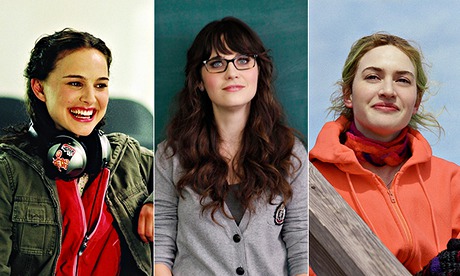
Name: Manic Pixie Dream Girl.
Age: Seven.
Appearance: Every woman from every match.com commercial ever made, but with bigger eyes and a more feverish ukulele obsession.
Hey, I've heard of this. Of course you have. Ever since AV Club writer Nathan Rabin coined the term in 2007, it's become a catch-all description for the sort of idealised kooky female archetype who breezes into about 80% of all indie movies and rescues the male protagonist from a life of existential ennui with her endearing yet massively impractical commitment to living in the moment.
Like Natalie Portman in Garden State.Yep. Or Kirsten Dunst in Elizabethtown. Or Zooey Deschanel in anything that Zooey Deschanel has ever appeared in. She's a quirky, one-dimensional free spirit who serves no other purpose than to bimble into a mumbling man's life and brighten it up with her annoyingly upcycled joie de vivre. She's a glamour model for men who read Camus, basically.
How very noughties. Not really. These characters have been in films for decades. Barbra Streisand was arguably a Manic Pixie Dream Girl in What's Up, Doc? As was Goldie Hawn in Butterflies are Free and Jeanne Moreau in Jules et Jim.
So Manic Pixie Dream Girls would still exist even if the term didn't? Indeed. And yet Rabin has asked us nicely to stop using the term, because we're doing it wrong.
We are? Apparently we've misappropriated it. "In 2014, calling a character a Manic Pixie Dream Girl," he says, "is nearly as much of a cliche as the Manic Pixie Dream Girl trope." Annie Hall, for example, has been called a Manic Pixie Dream Girl, even though Rabin points out: "Allen based a lot of Annie Hall on Diane Keaton, who, as far as I know, is a real person and not a ridiculous male fantasy."
What do we do now, then? Rabin's advice to writers is: "Try to write better, more nuanced and multidimensional female characters."
Do say: "Manic Pixie Dream Girls are a reductive fantasy that have no place in fiction."
Don't say: "We need more films about sensible women who come into men's lives and teach them important lessons about diverse portfolio investments."

